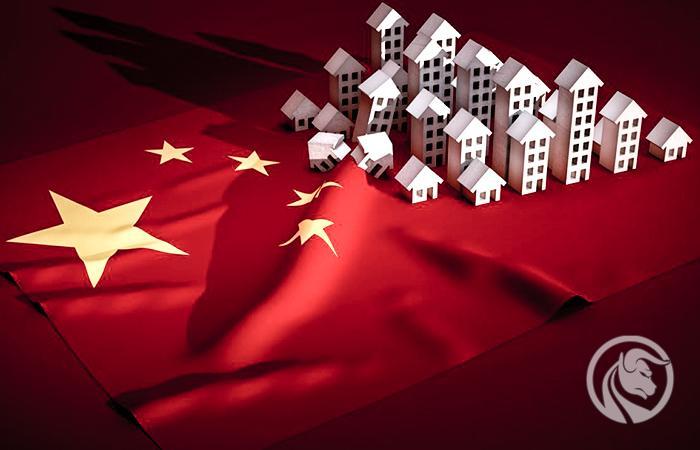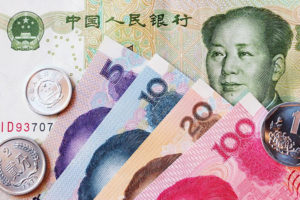How bad can the economic situation in China get worse?
China's economic activity data for July, including retail sales, industrial production and investment, fell short of expectations, fueling fears of a deeper and longer-lasting slowdown in economic growth. The slowdown in China's growth has been wrongly predicted before. Is it different this time? Data on economic activity since the beginning of the second quarter have deviated from forecasts, and their weakness raises concerns that the Chinese economy is approaching a tipping point. It wouldn't be the first time.
During the global financial crisis of 2008-2009 and the capital outflow scare of 2015, growth alarm bells were sounding. China emerged from these crises with a shock boost to infrastructure investment and encouraging real estate speculation. However, infrastructure upgrades have created too much debt and the real estate bubble has already burst, posing a threat to the financial stability of the Middle Kingdom.
Given that China's debt-driven investment in infrastructure and real estate has peaked, and exports are slowing in line with the global trend. China has only one other source of demand with which to manipulate household consumption. In that sense, this slowdown is different.
Whether China rebounds to a large extent depends on whether it can convince households to spend more and save less, to the extent that consumer demand compensates for weaknesses elsewhere in the economy.
Why do economists focus on household demand?
Unlike consumers in the West, the Chinese were left to fend for themselves during the COVID-19 pandemic, and the spending frenzy some economists expected when China reopened never happened. However, household consumption as a percentage of gross domestic product (GDP) was among the lowest in the world even before the pandemic, and economists identified it as a key structural imbalance in an economy too heavily reliant on debt-driven investment.
Economists blame weak domestic demand for a pent-up appetite for private-sector investment and China's plunge into deflation in July. If this condition persists, deflation can exacerbate an economic downturn and exacerbate debt problems. The imbalance between consumption and investment is deeper than in Japan before entering the "lost decade" of stagnation in the 90s.
How serious can the slowdown be?
July's economic activity data prompted some economists to point to the risk that China might struggle to meet its growth target of around 5% for the year without further fiscal stimulus. This is still much higher growth than many other major economies, but for a country that invests around 40% of its GDP each year - about twice as much as the US - it remains a disappointing result. There is also uncertainty about China's appetite for big fiscal stimulus given high levels of municipal debt.
Tensions in the real estate market, which accounts for around a quarter of economic activity, raises further concerns about the ability of policymakers to stem the decline in growth. Some economists warn that investors will have to get used to much lower growth. A minority of them even pose the prospect of stagnation, following the example of Japan. But other economists say many consumers and small businesses may already be feeling economic pain as deep as during a recession, with youth unemployment rates over 21% and deflationary pressures taking a toll on profit margins.
Will interest rate cuts help?
China's central bank surprised markets by cutting interest rates on Tuesday. However, economists warn that the cuts are too small to have a significant impact, as their main role is to send a signal to markets that authorities are ready to stimulate the economy. Deeper cuts may also pose a risk of yuan depreciation and capital outflows, which China will want to avoid.
What will help?
Economists want actions that would increase the share of household consumption in CBA. Options include government-funded consumer vouchers, substantial tax cuts, encouraging faster wage growth, building a social safety net with higher pensions, unemployment benefits and better and more widely available public services. No such steps were reported at a recent meeting of Communist Party leaders, but economists are awaiting a key party conference in December to carry out deeper structural reforms.






















![Forex Club – Tax 9 – Settle tax on a foreign broker [Download the Application] Forex Club - Tax 9](https://forexclub.pl/wp-content/uploads/2024/02/Forex-Club-Podatek-9-184x120.jpg?v=1709046278)
![Trading View platform – solutions tailored to the needs of traders [Review] trading view review](https://forexclub.pl/wp-content/uploads/2024/03/trading-view-recenzja-184x120.jpg?v=1709558918)
![How to connect your FP Markets account to the Trading View platform [Guide] fp markets trading view](https://forexclub.pl/wp-content/uploads/2024/02/fp-markets-trading-view-184x120.jpg?v=1708677291)
![How to invest in ChatGPT and AI? Stocks and ETFs [Guide] how to invest in chatgpt and artificial intelligence](https://forexclub.pl/wp-content/uploads/2023/02/jak-inwestowac-w-chatgpt-i-sztuczna-inteligencje-184x120.jpg?v=1676364263)






![Izabela Górecka – “Success on the market depends not only on knowledge, but also on emotional stability” [Interview] Izabela Górecka - interview](https://forexclub.pl/wp-content/uploads/2024/04/Izabela-Gorecka-wywiad-184x120.jpg?v=1713870578)
![WeWork – the anatomy of the collapse of a company valued at $47 billion [WeWork, part II] wework bankruptcy story](https://forexclub.pl/wp-content/uploads/2024/04/wework-bankructwo-historia-184x120.jpg?v=1711729561)
![Adam Neumann – the man who screwed up Softbank [WeWork, part AND] adam neumann wework](https://forexclub.pl/wp-content/uploads/2024/04/adam-neumann-wework-184x120.jpg?v=1711728724)


![The most common mistakes of a beginner trader - Mr Yogi [VIDEO] Scalping - The most common mistakes of a beginner trader - VIDEO](https://forexclub.pl/wp-content/uploads/2024/03/Scalping-Najczestsze-bledy-poczatkujacego-tradera-VIDEO-184x120.jpg?v=1711601376)
![Learning patience: No position is also a position - Mr Yogi [VIDEO] Scalping - Learning patience - No position is also a position - VIDEO](https://forexclub.pl/wp-content/uploads/2024/03/Scalping-Nauka-cierpliwosci-Brak-pozycji-to-tez-pozycja-VIDEO-184x120.jpg?v=1710999249)
![When to exit a position and how to minimize losses - Mr Yogi [VIDEO] Scalping - When to exit a position and how to minimize losses - VIDEO](https://forexclub.pl/wp-content/uploads/2024/03/Scalping-Kiedy-wyjsc-z-pozycji-i-jak-minimalizowac-straty-VIDEO-184x120.jpg?v=1710336731)



















Leave a Response